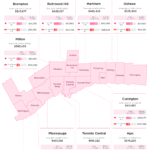Special to the Financial Independence Hub
What’s the most difficult thing to talk about with your children? For many of us, discussing plans for our estate is pretty high on the list. Talking about your will and your own passing can be uncomfortable. According to a recent IPC Private Wealth survey of Canadians with at least $500,000 in investable assets, 58 per cent have not talked to their heirs about instructions for their estate, both financial and personal.
Having the inheritance discussion is very important, largely because of the consequences after your passing if you don’t have the talk. Perhaps one child wants to keep the vacation property while the other wants to sell, creating financial discord among siblings. Or there is a dispute about one’s final wishes upon death. The consequences are many and varied, and can be different for each family but equally devastating.
Holding the family meeting
As a financial planner myself, I can tell you that I am very happy to host or attend a family meeting, which should include the executor. It takes the pressure off you. Just let your children know that your advisor recommends having beneficiaries present during part of your estate planning process.
Or say you want to hold a meeting on your own. Beforehand, ask your advisor for coaching on approach and content. You’ll feel a lot more comfortable during the family meeting.
At my firm, we believe there are two main themes to a wealth transfer meeting. The first is about values. Share your views of money and wealth, ask your children what money means to them, and have a discussion. Tell your children what it took to create your wealth. Talk about the idea of a legacy – helping out your children and grandchildren with the hope that your children will do the same. Why discuss these ideas? You want to guide your children to a place where they feel appreciative, not entitled. Where they are trustworthy, not irresponsible.
The second theme is all about your will. Talk about how you’d like your legacy to be managed, and go through the distribution of assets, explaining the reasons for your decisions. This is where you discover if any of your bequests could unintentionally lead to conflicts between children, delays in estate administration, or your will being contested. If any problems arise, you’ll have the opportunity to resolve them — and you’ll be thankful you uncovered the issues now.
Wealth transfer for blended families
If you’re in a blended family, you have an additional layer of estate planning. Take the case of an individual in a second marriage who has children from the first marriage, and needs to provide for both the spouse and children. Continue Reading…







